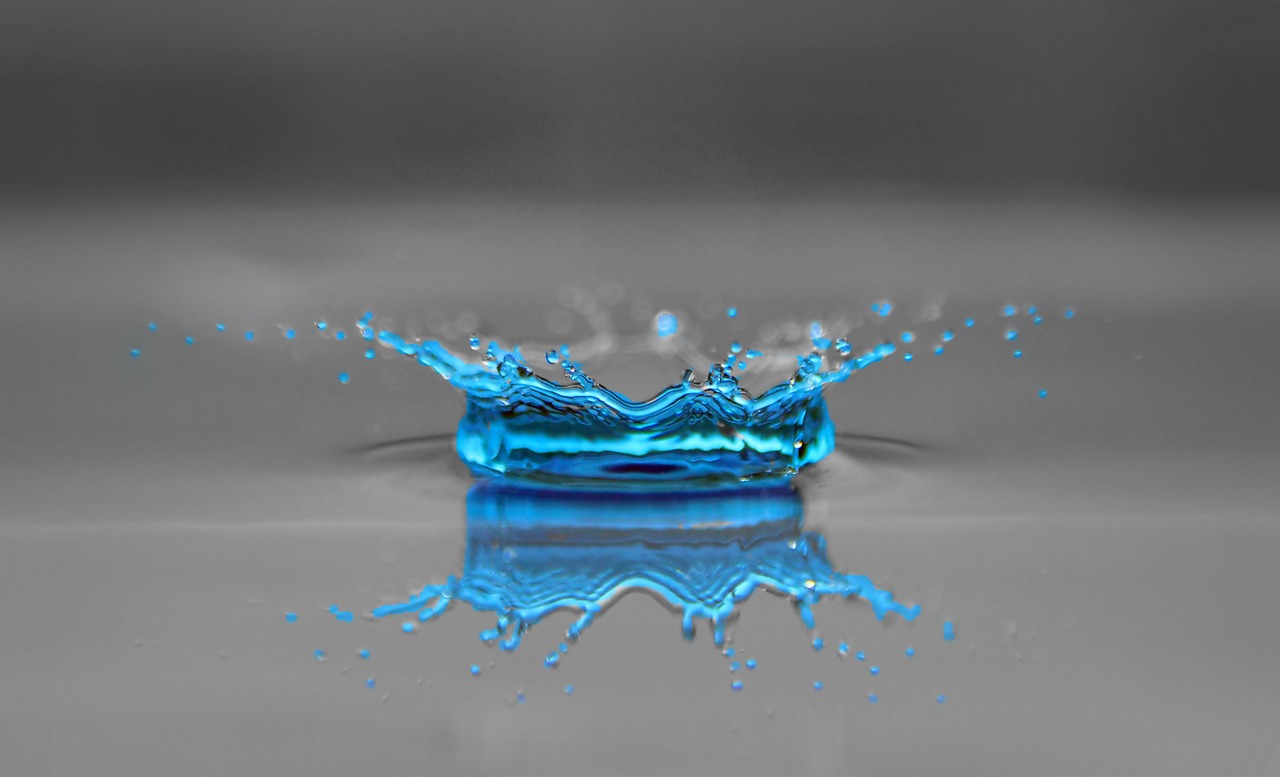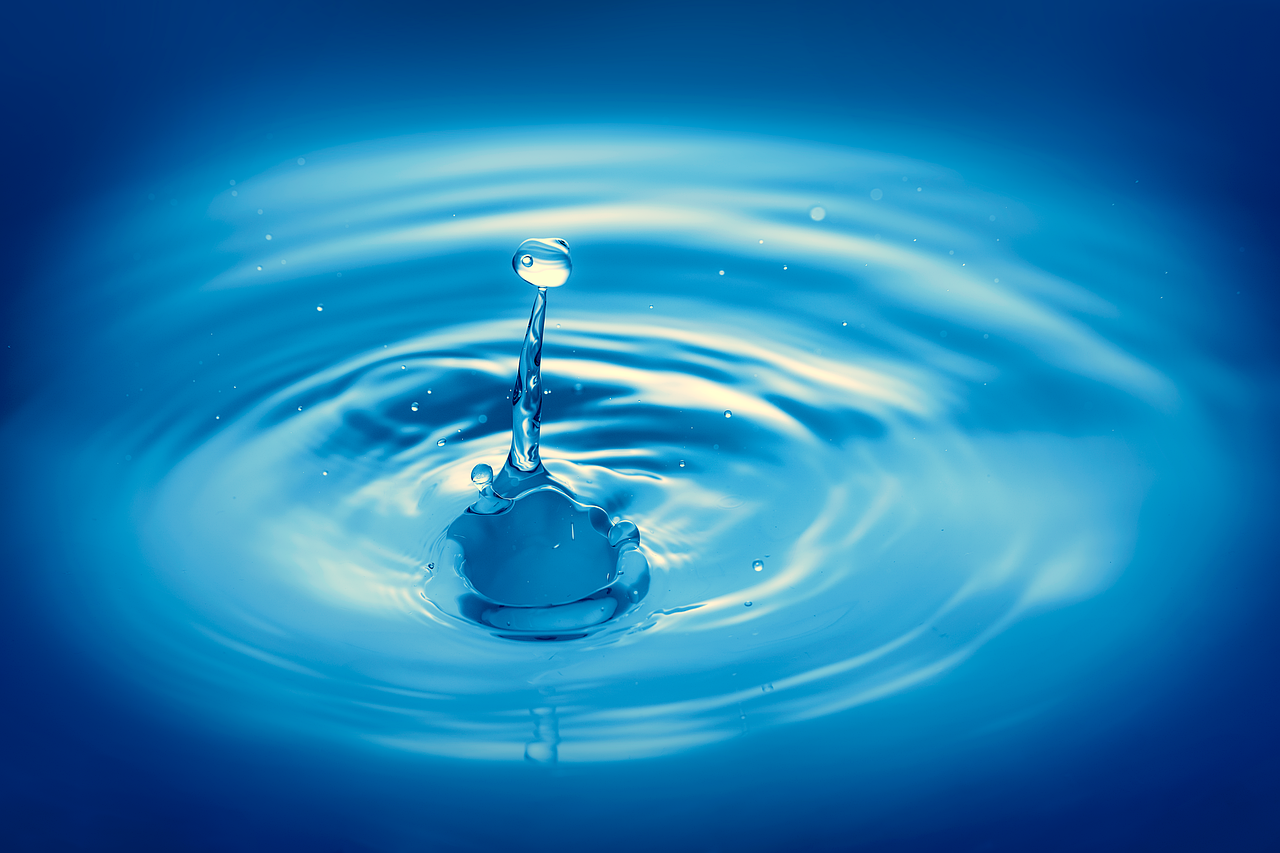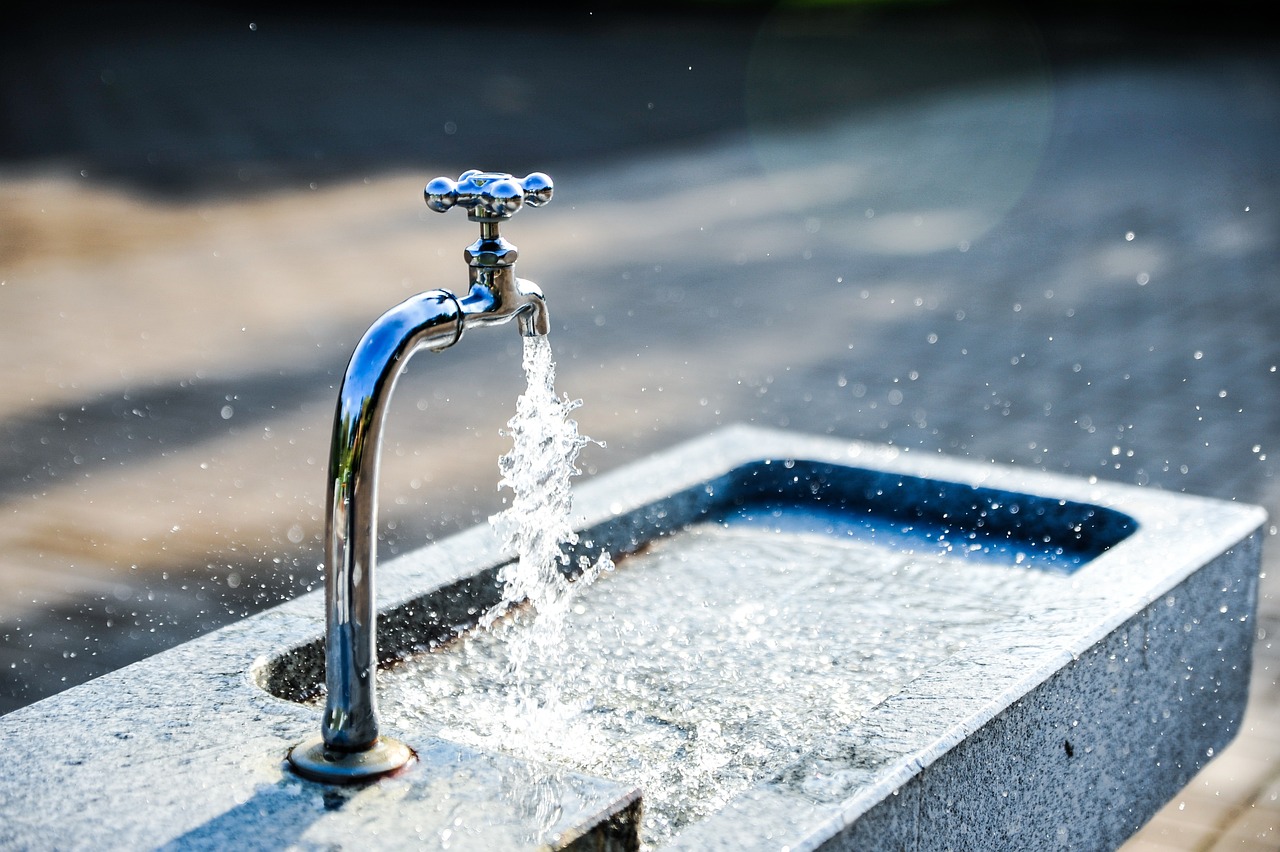This article explores effective natural remedies for reducing water retention quickly. Water retention, also known as edema, is a common issue that can cause discomfort and bloating. Understanding the underlying causes and implementing practical solutions can significantly improve your well-being. Here, we will discuss dietary changes, lifestyle tips, and home remedies that can help alleviate this common issue.
What is Water Retention?
Water retention occurs when excess fluid accumulates in the body’s tissues, leading to swelling and discomfort. It can manifest in various parts of the body, including the legs, ankles, and abdomen. Recognizing the symptoms, such as puffiness or tightness in the skin, is essential for effective management.
Common Causes of Water Retention
- Dietary Factors: High sodium intake is a significant contributor to water retention. Foods that are rich in salt can disrupt fluid balance, leading to swelling.
- Hormonal Changes: Fluctuations in hormones, particularly during menstruation or pregnancy, can cause temporary water retention.
- Medical Conditions: Certain health issues, such as heart or kidney problems, may also lead to increased fluid retention.
Natural Remedies to Reduce Water Retention
Several natural remedies can effectively alleviate water retention:
- Herbal Supplements: Herbs like dandelion and ginger possess natural diuretic properties that promote fluid elimination. These can be consumed as teas or supplements.
- Potassium-Rich Foods: Incorporating foods high in potassium, such as bananas, avocados, and sweet potatoes, can help balance sodium levels and reduce fluid retention.
- Hydration: Ironically, not drinking enough water can lead to fluid retention. Staying well-hydrated encourages the body to release excess fluids.
Lifestyle Changes to Combat Water Retention
Adopting specific lifestyle changes can significantly reduce water retention:
- Regular Exercise: Engaging in physical activity boosts circulation and helps the body eliminate excess fluids. Activities like walking, swimming, or yoga can be particularly beneficial.
- Stress Management: High stress levels can trigger hormonal imbalances, leading to water retention. Techniques such as meditation, deep breathing, and yoga can help manage stress effectively.
When to Seek Medical Attention
While many cases of water retention can be managed with natural remedies, it’s crucial to recognize when to seek medical advice. Persistent or severe swelling may indicate underlying health issues that require professional evaluation. If you experience symptoms like shortness of breath or chest pain, it’s essential to consult a healthcare professional promptly.
Signs of Serious Conditions
Be aware of symptoms that may signal more serious health problems, such as:
- Severe or persistent swelling
- Pain or discomfort in the affected areas
- Changes in urination patterns
If natural remedies do not alleviate symptoms, a healthcare professional can provide personalized advice and treatment options tailored to individual needs. Remember that while natural remedies can be effective, they should complement, not replace, professional medical advice.

What is Water Retention?
Water retention, also known as edema, is a condition characterized by the accumulation of excess fluid in the body’s tissues. This phenomenon can occur in various parts of the body, including the legs, ankles, and abdomen, leading to noticeable swelling. Understanding the intricacies of water retention is essential for effective management and treatment, as it can be a symptom of underlying health issues or simply a result of lifestyle factors.
Fluid balance in the body is regulated by several mechanisms, including the kidneys, hormones, and blood vessels. When these systems are disrupted, water can accumulate, leading to discomfort and other symptoms. Recognizing the signs of water retention is crucial for identifying its causes and implementing appropriate remedies.
Common symptoms of water retention include:
- Swelling in the extremities, such as hands, feet, and legs
- Stiffness in the joints
- Weight gain without a change in diet or physical activity
- Indentations left on the skin after pressing
Several factors can contribute to water retention, and understanding these can help in addressing the issue effectively. Some of the most common causes include:
- Dietary Choices: A diet high in sodium can lead to increased fluid retention. Sodium attracts water, causing the body to hold onto excess fluids.
- Hormonal Changes: Fluctuations in hormones, particularly during the menstrual cycle or pregnancy, can lead to temporary water retention.
- Medical Conditions: Certain health issues, such as heart, kidney, or liver diseases, can impair the body’s ability to regulate fluid balance, resulting in edema.
- Medications: Some medications, including non-steroidal anti-inflammatory drugs (NSAIDs) and corticosteroids, can cause fluid retention as a side effect.
It’s important to monitor the symptoms and underlying causes of water retention, as persistent or severe cases may require medical evaluation. If you notice significant swelling or discomfort, it is advisable to consult a healthcare professional for a thorough assessment.
In conclusion, understanding what water retention is and recognizing its symptoms is the first step towards effective management. By identifying the causes, individuals can take proactive measures to alleviate the condition through dietary changes, lifestyle adjustments, and, if necessary, medical intervention.
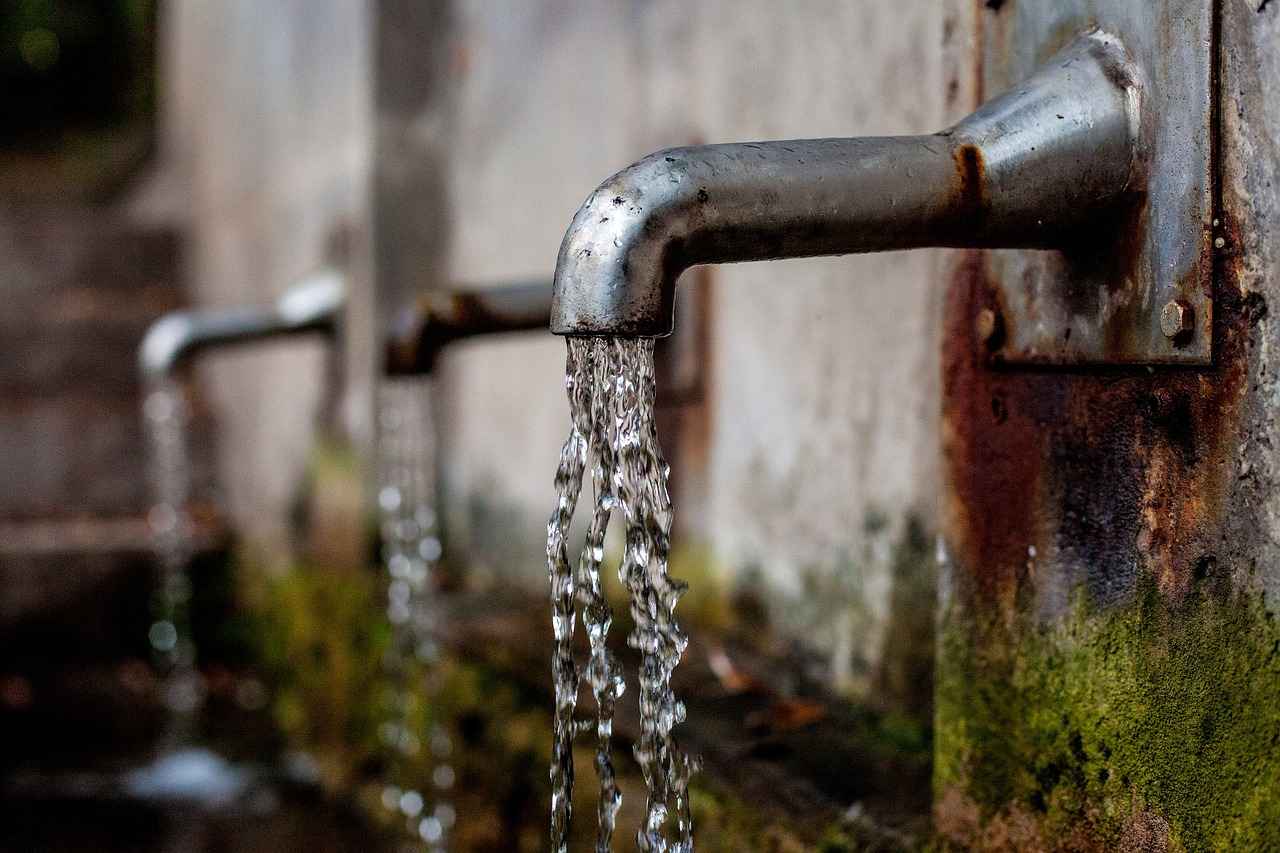
Common Causes of Water Retention
Water retention, also known as edema, is a common condition that affects many individuals. It occurs when excess fluid accumulates in the body’s tissues, leading to swelling and discomfort. Understanding the is essential for effectively managing and reducing its impact on daily life.
Several factors contribute to this condition, and identifying them can help individuals choose the most appropriate remedies for their specific situations. Below are the primary causes of water retention:
- Dietary Habits: One of the most significant contributors to water retention is high sodium intake. Sodium plays a crucial role in fluid balance; when consumed in excess, it causes the body to retain more water. Processed foods, which are often loaded with sodium, can exacerbate this issue. Reducing the intake of these foods and opting for fresh, whole ingredients can lead to substantial improvements.
- Hormonal Changes: Hormonal fluctuations can lead to temporary water retention, particularly in women during menstruation or pregnancy. These hormonal shifts can alter the body’s fluid balance, causing swelling in various areas. Recognizing these changes can help individuals manage their symptoms more effectively.
- Medical Conditions: Certain medical conditions can also lead to water retention. Issues such as heart disease, kidney disease, and liver problems can disrupt the body’s ability to regulate fluid levels, resulting in edema. If water retention persists or is accompanied by other concerning symptoms, it is essential to consult a healthcare professional for a thorough evaluation.
- Medications: Some medications can cause water retention as a side effect. For instance, nonsteroidal anti-inflammatory drugs (NSAIDs), certain blood pressure medications, and corticosteroids may lead to fluid buildup. If you suspect that your medications are contributing to water retention, discuss alternatives with your doctor.
- Inactivity: A sedentary lifestyle can also contribute to water retention. Lack of movement can hinder circulation, making it difficult for the body to eliminate excess fluids. Incorporating regular physical activity into your routine can promote better fluid balance and reduce swelling.
- Dehydration: Ironically, not drinking enough water can lead to water retention. When the body is dehydrated, it tends to hold onto fluids to prevent further loss. Staying adequately hydrated is crucial for maintaining a healthy fluid balance.
By understanding these common causes of water retention, individuals can take proactive steps to alleviate the condition. Making dietary adjustments, staying active, and being mindful of hormonal changes can all contribute to better management of fluid retention. If symptoms persist or worsen, seeking medical advice is essential to rule out any underlying health issues.
Dietary Factors
Water retention, also known as edema, is a common condition that affects many individuals. It occurs when excess fluid builds up in the body’s tissues, leading to swelling and discomfort. One of the primary dietary factors contributing to this issue is high sodium intake. Understanding the relationship between salt and fluid balance is crucial for those looking to alleviate water retention.
High sodium intake is a primary dietary cause of water retention. Sodium plays a vital role in regulating fluid balance within the body. When consumed in excess, it can cause the body to hold onto more water, leading to a feeling of bloating and swelling. Reducing sodium intake can significantly help manage and alleviate these symptoms.
Processed foods are often loaded with sodium. These foods, which include canned soups, frozen meals, and snack items, can contribute to excessive sodium consumption. To combat water retention, it is advisable to limit processed foods and opt for fresh, whole ingredients. Cooking at home allows for better control over sodium levels, making it easier to maintain a healthy diet.
In addition to sodium, hydration levels play a crucial role in fluid balance. Ironically, not drinking enough water can lead to water retention. When the body is dehydrated, it tends to hold onto fluids as a survival mechanism. Therefore, maintaining proper hydration is essential. Aim to drink at least eight glasses of water a day, and consider incorporating hydrating foods, such as cucumbers and watermelon, into your diet.
Another important aspect of dietary management is the inclusion of potassium-rich foods. Potassium helps to counteract the effects of sodium and promotes healthy fluid balance. Foods such as bananas, avocados, and sweet potatoes are excellent sources of potassium. By increasing potassium intake while reducing sodium, individuals can effectively manage water retention.
Moreover, certain herbal remedies can support the body’s natural diuretic functions. Herbs like dandelion and ginger are known for their ability to promote urine production and help reduce water retention. Incorporating these herbs into meals or consuming them as teas can provide additional relief.
It’s also important to consider the timing of meals. Eating smaller, more frequent meals can help stabilize blood sugar levels, which in turn may assist in regulating fluid balance. Avoiding large meals, especially those high in sodium, can prevent spikes in fluid retention.
In summary, managing dietary factors is essential for reducing water retention. By being mindful of sodium intake, staying hydrated, and incorporating potassium-rich foods, individuals can take significant steps toward alleviating this common issue. Understanding how dietary habits influence fluid retention empowers individuals to make informed choices for better health and well-being.
Processed Foods
Processed foods have become a staple in many diets due to their convenience and availability. However, these foods often come with hidden downsides, particularly concerning their sodium content. High levels of sodium are prevalent in many processed items, including snacks, canned goods, and ready-to-eat meals. This excess sodium can lead to a condition known as water retention, where the body holds onto excess fluid, resulting in discomfort and bloating.
When sodium levels in the body rise, they disrupt the balance of fluids, causing cells to absorb more water. This can lead to noticeable swelling in various parts of the body, such as the legs, ankles, and abdomen. Therefore, it is crucial to understand the impact of sodium-rich processed foods on water retention. Reducing the intake of these foods can significantly alleviate symptoms and improve overall well-being.
To combat water retention effectively, consider making the following dietary adjustments:
- Read Labels: Always check the sodium content on food labels. Aim for products with low sodium or no added salt.
- Choose Fresh Foods: Incorporate more fresh fruits and vegetables into your diet. These foods are naturally low in sodium and high in essential nutrients.
- Cook at Home: Preparing meals from scratch allows you to control the ingredients, reducing the likelihood of excessive sodium intake.
In addition to dietary changes, increasing your potassium intake can also help counteract the effects of sodium. Foods rich in potassium, such as bananas, sweet potatoes, and spinach, can promote a healthy fluid balance in the body.
Moreover, staying adequately hydrated is essential. Although it may seem counterintuitive, drinking enough water can actually help reduce water retention. When the body is well-hydrated, it is less likely to hold onto excess fluids. Aim for at least eight glasses of water a day, and consider herbal teas or infused water for added flavor.
Another effective strategy is to incorporate natural diuretics into your diet. Foods like cucumber, watermelon, and asparagus can help promote urination and reduce water retention without the side effects associated with some medications. Additionally, herbal supplements such as dandelion and ginger are known for their diuretic properties and can be beneficial when included in your diet.
It is also important to maintain a balanced lifestyle. Regular physical activity can enhance circulation and help your body remove excess fluids more effectively. Aim for at least 30 minutes of moderate exercise most days of the week. Activities like walking, swimming, or cycling can be particularly beneficial.
Lastly, managing stress levels is key to minimizing water retention. Stress can lead to hormonal imbalances that exacerbate fluid retention, so incorporating relaxation techniques such as yoga, meditation, or deep breathing can be helpful.
In summary, while processed foods are convenient, their high sodium content can contribute significantly to water retention. By making informed dietary choices, staying hydrated, and adopting a healthy lifestyle, you can effectively reduce symptoms of water retention and improve your overall health.
Hydration Levels
Maintaining proper hydration levels is crucial for overall health and well-being. Many people underestimate the importance of drinking enough water, which can lead to a variety of health issues, including water retention. Ironically, when the body is not adequately hydrated, it can respond by holding onto excess fluids, resulting in a condition known as edema.
Water retention occurs when the body retains more fluid than it needs, causing swelling in various parts of the body, particularly in the legs, ankles, and abdomen. This condition can be uncomfortable and may be indicative of underlying health issues. Understanding the relationship between hydration and fluid retention is essential for effective management.
The human body is composed of approximately 60% water. This water is vital for numerous bodily functions, including regulating temperature, transporting nutrients, and flushing out waste. When fluid intake is insufficient, the body may interpret this as a signal to conserve water, leading to increased fluid retention. This is a survival mechanism that can be counterproductive in modern life, where adequate hydration is easily accessible.
Electrolytes, such as sodium and potassium, play a significant role in maintaining fluid balance within the body. When hydration levels are low, the balance of these electrolytes can also be disrupted, further exacerbating water retention. For instance, a diet high in sodium can lead to increased water retention, while foods rich in potassium can help counteract this effect. Foods like bananas, spinach, and avocados are excellent sources of potassium that can aid in fluid balance.
Recognizing the signs of dehydration is key to preventing fluid retention. Symptoms can include:
- Dry mouth
- Fatigue
- Dizziness
- Dark yellow urine
If you experience these symptoms, it is essential to increase your water intake to help restore balance and reduce the risk of water retention.
Here are some practical tips to ensure you stay hydrated:
- Drink water regularly: Aim for at least 8-10 glasses of water per day, adjusting based on your activity level and climate.
- Infuse your water: Adding slices of fruits like lemon or cucumber can enhance flavor and encourage you to drink more.
- Eat water-rich foods: Incorporate fruits and vegetables with high water content, such as watermelon, cucumbers, and oranges.
- Set reminders: Use apps or alarms to remind you to drink water throughout the day.
In summary, staying adequately hydrated is essential for preventing water retention and maintaining overall health. By understanding the body’s mechanisms and implementing practical hydration strategies, individuals can effectively manage fluid balance and reduce the risk of edema. Remember, if you find that increasing your water intake does not alleviate symptoms of water retention, it may be wise to consult a healthcare professional for further evaluation.
Hormonal Changes
Hormonal fluctuations are a natural part of the human body, significantly impacting various physiological processes. These changes can occur due to several factors, including menstruation, pregnancy, and even menopause. One of the most common effects of these hormonal shifts is water retention, also known as edema. Understanding the mechanisms behind these fluctuations can empower individuals to manage their symptoms more effectively.
During the menstrual cycle, women experience a rise in hormones such as estrogen and progesterone. These hormones play essential roles in preparing the body for potential pregnancy. However, they can also lead to an increase in the body’s fluid retention. Estrogen, in particular, can cause the body to hold onto sodium, which in turn leads to increased water retention. This is why many women report feeling bloated or puffy in the days leading up to their period.
Similarly, during pregnancy, the body undergoes dramatic hormonal changes that can also result in temporary water retention. The body produces higher levels of estrogen and progesterone to support the developing fetus, which can lead to increased fluid accumulation. Additionally, the growing uterus exerts pressure on blood vessels, particularly in the legs, further contributing to swelling and discomfort.
Recognizing these hormonal changes is crucial for managing symptoms effectively. Here are some practical tips:
- Stay Hydrated: While it may seem counterintuitive, drinking enough water can help flush out excess sodium and reduce water retention.
- Monitor Sodium Intake: Reducing salt in your diet can help minimize fluid retention. Focus on fresh fruits and vegetables instead of processed foods.
- Incorporate Potassium-Rich Foods: Foods like bananas, sweet potatoes, and spinach can help balance sodium levels and promote fluid balance.
- Exercise Regularly: Physical activity improves circulation and helps the body eliminate excess fluids.
- Consider Herbal Remedies: Certain herbs like dandelion may have diuretic properties that can assist in reducing water retention.
It is important to note that while hormonal changes can lead to temporary water retention, persistent swelling may indicate underlying health issues. If you experience severe or prolonged symptoms, consulting a healthcare professional is advisable. They can provide personalized guidance and ensure there are no serious health concerns.
In conclusion, understanding the impact of hormonal changes on water retention can help individuals take proactive steps to manage their symptoms. By implementing dietary adjustments, maintaining hydration, and engaging in regular physical activity, one can alleviate the discomfort associated with these hormonal shifts. Recognizing when to seek medical advice is also crucial in ensuring overall health and well-being.

Natural Remedies to Reduce Water Retention
Water retention, also known as edema, is a common condition that can cause discomfort and bloating. Fortunately, there are several natural remedies that can help alleviate this issue quickly and effectively. This section will delve into various approaches, including dietary modifications, herbal supplements, and lifestyle changes that promote fluid balance.
One of the most effective ways to manage water retention is through dietary changes. A diet rich in potassium can help balance sodium levels in the body, which is crucial for fluid regulation. Foods such as:
- Bananas
- Avocados
- Spinach
- Sweet potatoes
are excellent choices that can aid in reducing water retention.
Incorporating certain herbal supplements into your routine can also be beneficial. Herbs like dandelion and ginger are known for their natural diuretic properties, helping to eliminate excess fluids without causing adverse effects. Dandelion, in particular, is rich in potassium, making it an excellent option for those looking to manage their fluid levels effectively.
Ironically, not drinking enough water can lead to increased water retention. When the body is dehydrated, it tends to hold onto fluids as a protective mechanism. Therefore, ensuring adequate hydration is essential. Aim to drink at least 8-10 glasses of water daily, and consider incorporating herbal teas, such as green tea, which may also assist in reducing bloating.
In addition to dietary changes and herbal supplements, certain lifestyle modifications can significantly impact water retention. Regular physical activity promotes circulation and helps the body eliminate excess fluids. Engaging in exercises such as:
- Walking
- Swimming
- Yoga
can enhance overall fluid balance and reduce symptoms of water retention.
Stress can also contribute to hormonal imbalances that lead to water retention. Incorporating stress management techniques such as mindfulness, meditation, or breathing exercises can help mitigate this issue. Finding ways to relax and unwind is crucial for maintaining a healthy fluid balance.
To effectively manage water retention, it is equally important to avoid certain foods that may exacerbate the condition. High-sodium foods, often found in processed snacks and meals, can lead to increased fluid retention. Reducing your intake of:
- Salty snacks
- Canned soups
- Fast food
can significantly improve your symptoms.
Implementing these natural remedies, including dietary changes, herbal supplements, and lifestyle adjustments, can effectively alleviate water retention. By focusing on a balanced diet, staying hydrated, and managing stress, individuals can promote fluid balance and enhance overall well-being.
Herbal Remedies
When it comes to managing water retention, herbal remedies have gained popularity for their natural diuretic properties. Among these, dandelion and ginger stand out as effective options that can help alleviate this common issue.
Dandelion (Taraxacum officinale) is not just a common weed; it has been traditionally used for its medicinal properties. Rich in potassium, dandelion helps to balance sodium levels in the body, which can reduce fluid retention. Its natural diuretic effect encourages the kidneys to expel excess water without causing significant loss of electrolytes. Studies have shown that dandelion extract can increase urine production, providing a gentle way to relieve bloating and puffiness.
Another powerful herb, ginger (Zingiber officinale), is well-known for its anti-inflammatory properties. Ginger aids digestion and can help in reducing water retention by improving circulation and promoting the elimination of waste products. Its ability to stimulate digestion can also help in reducing the discomfort associated with bloating. Whether consumed as a tea, in cooking, or as a supplement, ginger can be a flavorful addition to your diet that supports fluid balance.
| Herb | Benefits | Usage |
|---|---|---|
| Dandelion | Natural diuretic, balances sodium levels | Tea, extract, capsules |
| Ginger | Anti-inflammatory, aids digestion | Tea, cooking, supplements |
In addition to dandelion and ginger, other herbs like parsley and green tea also offer diuretic effects. Parsley is often used in culinary dishes, but its leaves can also be brewed into a tea that promotes urination and reduces swelling. Green tea, on the other hand, is packed with antioxidants and can help flush out excess fluids while providing a refreshing beverage option.
When considering herbal remedies, it’s essential to approach them with mindfulness. While these natural options can be effective, it’s advisable to consult with a healthcare professional, especially if you have underlying health conditions or are taking medications. Some herbs may interact with medications or may not be suitable for everyone.
In summary, incorporating herbs like dandelion and ginger into your routine can provide a natural and effective way to combat water retention. These remedies not only help in reducing excess fluid but also contribute to overall health through their additional benefits. By exploring various herbal options, you can find a solution that works best for you, allowing for relief without the side effects often associated with pharmaceutical diuretics.
Foods That Help
When it comes to managing water retention, dietary choices play a crucial role. One of the most effective strategies is to incorporate foods that are rich in potassium. Foods such as bananas, avocados, and leafy greens can help balance sodium levels in the body, ultimately reducing fluid retention. Understanding the importance of these foods is essential for effective dietary management.
Potassium is a vital mineral that helps regulate fluid balance in the body. It works by counteracting the effects of sodium, which can cause the body to hold onto excess water. By increasing potassium intake, individuals can promote better fluid regulation and reduce the likelihood of experiencing bloating and swelling.
| Food Item | Potassium Content (mg per 100g) |
|---|---|
| Banana | 358 |
| Avocado | 485 |
| Spinach | 558 |
| Sweet Potato | 337 |
| White Beans | 561 |
In addition to bananas and avocados, other potassium-rich foods include spinach, sweet potatoes, and white beans. Incorporating these foods into your diet can significantly enhance your body’s ability to manage fluid retention. For example, adding a banana to your morning smoothie or enjoying a salad topped with avocado can be simple yet effective ways to boost your potassium intake.
Moreover, it is important to be mindful of your overall sodium intake. Processed foods are often high in sodium, which can exacerbate water retention. By limiting these foods and focusing on fresh, whole ingredients, you can create a balanced diet that supports fluid regulation.
Another effective approach is to combine potassium-rich foods with adequate hydration. Drinking plenty of water can help flush out excess sodium and prevent dehydration, which can paradoxically lead to water retention. Staying hydrated is essential for maintaining optimal bodily functions and promoting overall health.
Furthermore, consider incorporating herbal teas, such as dandelion tea, which has natural diuretic properties that can aid in reducing water retention. This can be an excellent complement to your potassium-rich diet.
In summary, understanding the role of potassium-rich foods in managing water retention is vital. By incorporating foods like bananas, avocados, and leafy greens into your diet while being mindful of sodium intake and staying hydrated, you can effectively reduce fluid retention. This holistic approach not only promotes better health but also enhances your overall well-being.
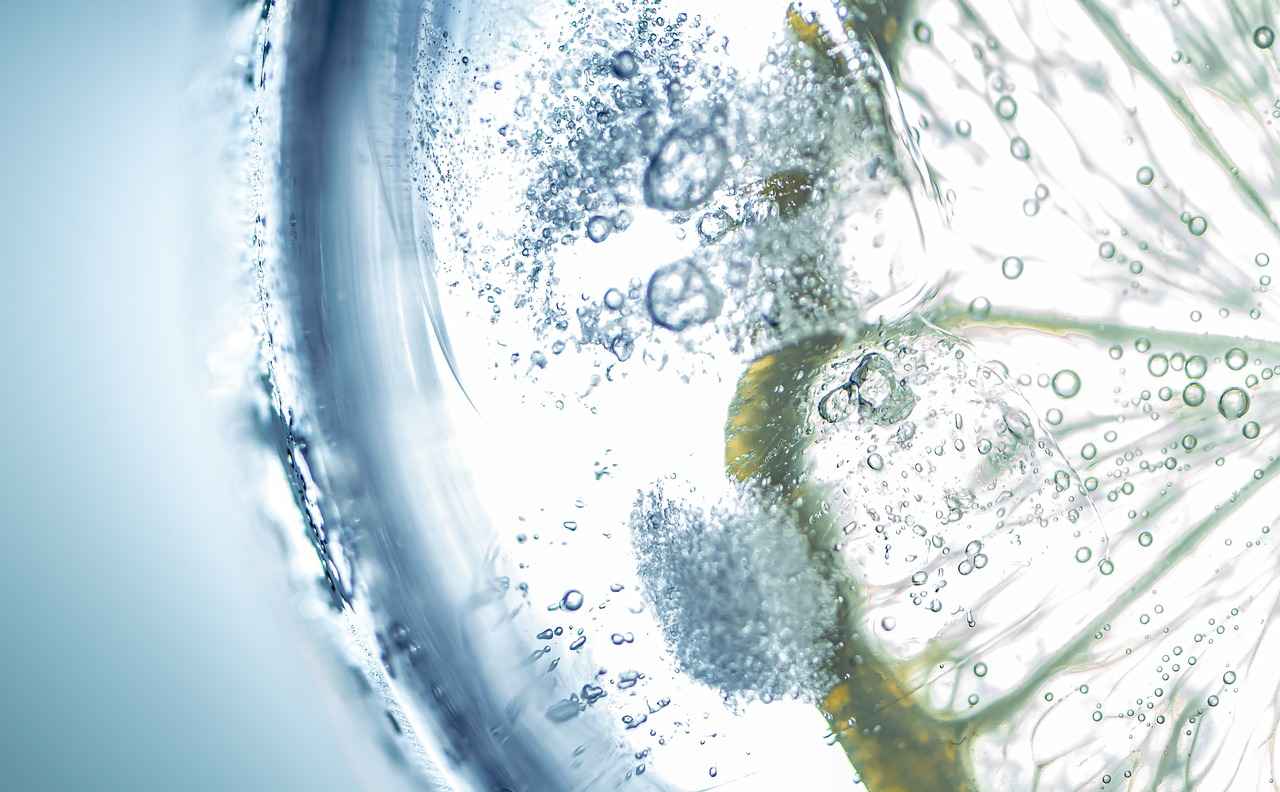
Lifestyle Changes to Combat Water Retention
Water retention can be a frustrating condition, but making lifestyle changes can significantly alleviate this issue. In this section, we will explore various strategies that can help reduce water retention effectively.
Adopting specific lifestyle changes can significantly reduce water retention. These include:
- Regular Exercise
- Proper Hydration
- Managing Stress Levels
Engaging in regular physical activity is one of the most effective ways to combat water retention. Exercise promotes better blood circulation and helps the body to eliminate excess fluids through sweat. Aim for at least 30 minutes of moderate exercise most days of the week. Activities such as walking, jogging, swimming, or cycling can be particularly beneficial.
Additionally, incorporating strength training into your routine can enhance muscle tone and improve overall fluid balance. Resistance exercises help increase metabolism, which can further assist in reducing water retention.
It may seem counterintuitive, but staying properly hydrated is crucial for reducing water retention. When the body is dehydrated, it tends to hold onto fluids as a protective mechanism. Aim to drink at least 8-10 glasses of water daily. This will help flush out excess sodium and toxins, promoting a healthier fluid balance.
In addition to plain water, consider incorporating herbal teas and infusions, which can also aid in hydration while providing additional health benefits. For example, green tea is known for its diuretic properties, which can further assist in reducing water retention.
Stress management is often overlooked but plays a significant role in fluid retention. High stress levels can lead to hormonal imbalances, particularly an increase in cortisol, which may cause the body to retain more water. Implementing stress-reduction techniques such as yoga, meditation, or deep breathing exercises can be beneficial.
Additionally, engaging in hobbies or activities that you enjoy can help reduce stress and improve your overall well-being. Ensuring you get adequate sleep is also crucial, as lack of rest can exacerbate stress and contribute to water retention.
While this section focuses on lifestyle changes, it’s important to note that dietary adjustments can complement these efforts. Reducing sodium intake, increasing potassium-rich foods, and incorporating diuretic foods such as cucumbers, watermelon, and asparagus can enhance the effectiveness of your lifestyle changes.
By adopting these lifestyle changes, you can significantly reduce water retention and improve your overall health. Regular exercise, proper hydration, and effective stress management work together to promote a balanced fluid level in the body. Remember, consistency is key, and making these changes a part of your daily routine can lead to lasting results.
Exercise and Physical Activity
Engaging in regular physical activity is essential for maintaining overall health, and it plays a particularly significant role in reducing water retention. Water retention, also known as edema, can lead to discomfort and bloating, but the right exercises can help alleviate these symptoms effectively.
One of the primary benefits of exercise is that it promotes circulation. Improved blood flow helps to move excess fluids away from the tissues, allowing the body to eliminate them more efficiently. This is particularly important for individuals who may be sedentary for long periods, as stagnant blood can exacerbate fluid retention.
When considering the best types of exercises for reducing water retention, a combination of cardiovascular workouts and strength training is highly effective. Here are some recommended activities:
- Walking: A simple yet effective way to get moving, walking increases circulation and can be done anywhere.
- Swimming: This low-impact exercise not only promotes circulation but also provides a soothing effect on the body, reducing swelling.
- Cycling: Whether outdoors or on a stationary bike, cycling can help engage the legs and improve fluid movement.
- Yoga: Certain yoga poses can aid in lymphatic drainage and promote relaxation, further reducing fluid retention.
- Strength Training: Incorporating weights or resistance bands can build muscle, which helps to improve overall metabolism and fluid balance.
In addition to these exercises, incorporating stretching routines can enhance flexibility and encourage fluid movement throughout the body. Stretching helps to prevent stiffness and promotes better circulation, making it an important part of any exercise regimen aimed at reducing water retention.
Another crucial aspect of physical activity is consistency. Engaging in exercise for at least 30 minutes most days of the week can yield significant benefits. This regularity not only helps with fluid elimination but also supports overall health, including weight management and improved mood.
It’s also important to pair exercise with proper hydration. While it may seem counterintuitive, drinking enough water can actually help the body balance its fluids and reduce retention. Staying well-hydrated encourages the kidneys to function effectively, flushing out excess sodium and fluids.
Moreover, managing stress through physical activity can further aid in reducing water retention. High-stress levels can lead to hormonal imbalances that contribute to fluid retention. Activities like running, dancing, or even group sports can provide both physical benefits and stress relief.
In summary, regular physical activity is a powerful tool in combating water retention. By incorporating a variety of exercises, maintaining hydration, and managing stress, individuals can significantly enhance their results and overall well-being. Understanding the connection between exercise and fluid balance is essential for anyone looking to alleviate the discomfort associated with water retention.
Stress Management Techniques
Stress is a prevalent issue in today’s fast-paced world, and it can significantly impact various aspects of health, including hormonal balance. When the body experiences stress, it triggers a cascade of hormonal changes, particularly involving cortisol, which can lead to water retention. Understanding how to manage stress effectively is crucial for those experiencing this uncomfortable condition.
One of the primary hormones affected by stress is cortisol. Elevated cortisol levels can lead to increased sodium retention, which in turn causes the body to hold onto more water. This physiological response can manifest as swelling in the extremities, bloating, and discomfort. Therefore, learning to manage stress is not just beneficial for mental health but also vital for maintaining a healthy fluid balance.
To combat stress and its effects on water retention, consider implementing the following :
- Meditation and Mindfulness: Practicing mindfulness or meditation can help calm the mind and reduce stress levels. These techniques encourage relaxation and have been shown to lower cortisol levels, which may help alleviate water retention.
- Physical Activity: Regular exercise is a powerful stress reliever. Activities like jogging, yoga, or even brisk walking can enhance mood and reduce anxiety, leading to lower cortisol levels and improved fluid balance.
- Breathing Exercises: Simple breathing techniques can be effective in managing acute stress. Deep, slow breaths can trigger the body’s relaxation response, helping to mitigate the effects of stress on hormonal balance.
- Healthy Sleep Habits: Quality sleep is essential for stress management. Aim for 7-9 hours of uninterrupted sleep each night to support hormonal regulation and reduce water retention.
Incorporating these techniques into your daily routine can significantly help in managing stress levels. Additionally, engaging in hobbies or activities that bring joy can further reduce stress and its physiological impacts.
Furthermore, maintaining a balanced diet rich in nutrients can complement these stress management strategies. Foods high in magnesium, such as leafy greens and nuts, can help regulate cortisol levels. Staying hydrated is also essential; paradoxically, drinking enough water can help prevent the body from retaining excess fluids.
It’s important to recognize that chronic stress can have long-term effects on overall health, including metabolic issues and cardiovascular problems. Therefore, addressing stress not only helps with water retention but also promotes a healthier lifestyle in general.
In conclusion, while stress can contribute to hormonal imbalances leading to water retention, adopting effective stress management techniques can significantly mitigate this issue. By integrating mindfulness, physical activity, and healthy lifestyle choices, individuals can enhance their well-being and reduce the uncomfortable symptoms associated with water retention.
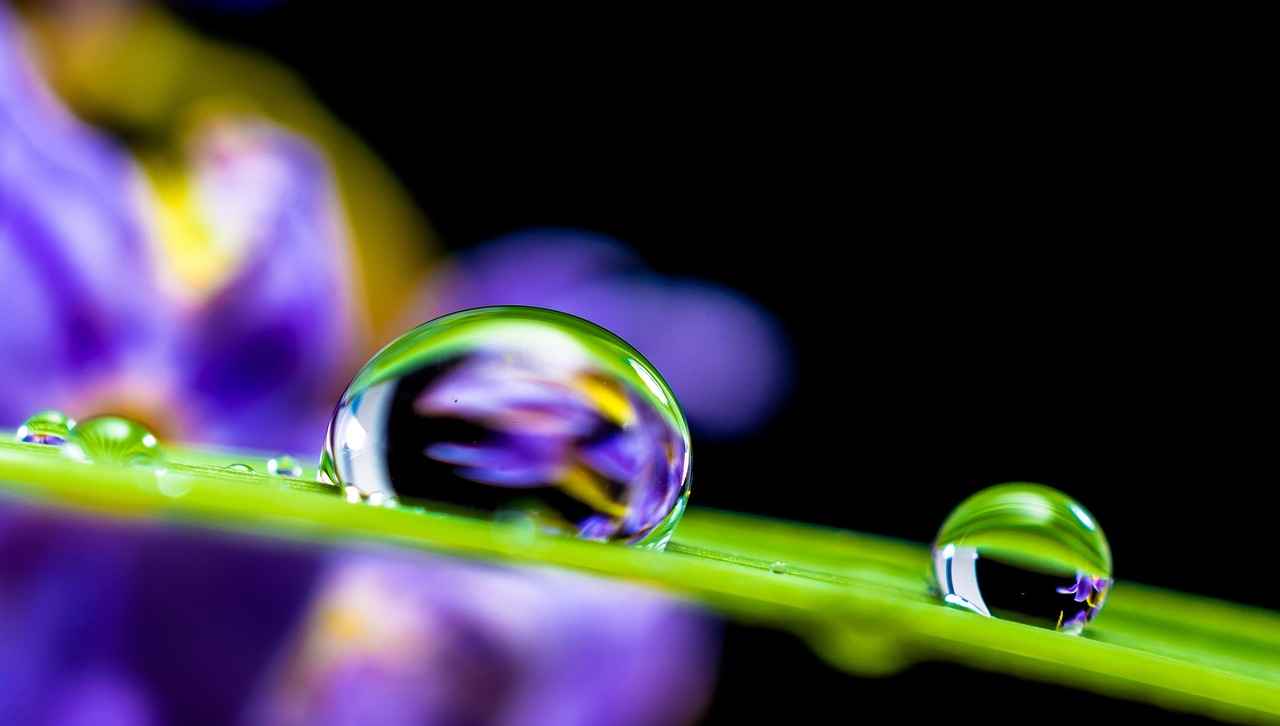
When to Seek Medical Attention
Water retention, also known as edema, can often be a temporary condition that resolves with lifestyle adjustments and natural remedies. However, it is essential to recognize that there are instances when water retention may signal more serious underlying health issues. Understanding when to seek medical attention is crucial for maintaining overall health and well-being.
Identifying Symptoms That Require Attention
While mild water retention can be managed effectively at home, certain symptoms should not be overlooked. If you experience any of the following signs, it is advisable to consult a healthcare professional:
- Persistent Swelling: If swelling in the legs, ankles, or feet does not subside after a few days, it may indicate a more serious condition.
- Severe or Sudden Swelling: Rapid or severe swelling in any part of the body should be evaluated immediately, as it could signify an allergic reaction or other acute conditions.
- Pain or Discomfort: Any pain associated with swelling, particularly in the chest, abdomen, or legs, warrants prompt medical attention.
- Shortness of Breath: Difficulty in breathing, especially when combined with swelling, could indicate heart or lung issues and requires urgent care.
- Changes in Urination: If you notice a decrease in urination or changes in the appearance of urine, it may point to kidney problems.
Understanding Underlying Conditions
Water retention can be a symptom of various medical conditions, including:
- Heart Disease: Conditions affecting the heart can lead to fluid buildup, as the heart struggles to pump effectively.
- Kidney Disorders: Impaired kidney function can disrupt fluid balance, causing the body to retain excess water.
- Liver Disease: Liver dysfunction can lead to fluid accumulation in the abdomen and lower extremities.
- Hormonal Imbalances: Conditions such as hypothyroidism or hormonal changes during pregnancy can also contribute to water retention.
Consulting a Healthcare Professional
If natural remedies do not provide relief or if you notice any of the concerning symptoms mentioned above, it is crucial to consult a healthcare professional. They can conduct a thorough evaluation, which may include:
- Physical examination to assess the extent of swelling
- Blood tests to check kidney and liver function, as well as electrolyte levels
- Imaging studies, such as ultrasounds, to identify underlying issues
Importance of Early Detection
Recognizing the signs that warrant medical attention can lead to early detection of serious health conditions. Early intervention often results in better outcomes and can prevent complications associated with untreated issues.
In conclusion, while many cases of water retention can be managed with natural remedies and lifestyle changes, it is essential to remain vigilant for symptoms that may indicate a need for medical evaluation. Prioritizing your health and seeking professional advice when necessary will ensure that you maintain optimal well-being.
Signs of Serious Conditions
Water retention, also known as edema, is a common issue that many people experience at some point in their lives. While it can often be attributed to harmless factors such as diet or lifestyle, persistent or severe water retention may indicate more serious underlying health problems. Recognizing the signs associated with these conditions is crucial for timely intervention and treatment.
Understanding the Risks
When the body retains excess fluid, it can lead to swelling in various parts, particularly in the legs, ankles, and abdomen. This swelling can be uncomfortable and may limit mobility. However, if the swelling is accompanied by other symptoms, it may be a signal of more serious health issues, such as:
- Heart Problems: Conditions like congestive heart failure can cause fluid to accumulate in the body. Symptoms may include shortness of breath, fatigue, and a persistent cough.
- Kidney Issues: The kidneys play a vital role in fluid regulation. If they are not functioning properly, it can lead to significant fluid retention, often accompanied by changes in urination patterns.
- Liver Disease: Liver dysfunction can also lead to fluid buildup, particularly in the abdominal area. Symptoms may include jaundice, fatigue, and swelling in the legs.
- Thyroid Disorders: An underactive thyroid can result in fluid retention. Other signs may include weight gain, fatigue, and sensitivity to cold.
Identifying Symptoms
It is essential to be aware of accompanying symptoms that may indicate a serious condition. These can include:
- Severe Swelling: If the swelling is extreme and does not improve with elevation or rest, it may require medical attention.
- Shortness of Breath: Difficulty breathing, especially when lying down, can be a sign of heart-related issues.
- Pain or Discomfort: Pain in the chest, abdomen, or back, particularly if it is sudden or severe, should not be ignored.
- Changes in Urination: A decrease in urine output or changes in urine color may indicate kidney problems.
When to Seek Help
If you experience any of these symptoms alongside water retention, it is important to consult a healthcare professional promptly. Early diagnosis can significantly improve outcomes and may prevent complications. A healthcare provider may recommend tests such as blood work, imaging studies, or urine tests to determine the underlying cause of the water retention.
Conclusion
While water retention can often be managed through lifestyle changes and home remedies, it is vital to remain vigilant about any persistent or severe symptoms. Understanding the potential risks associated with water retention can empower individuals to seek timely medical assistance, ensuring that any serious conditions are addressed effectively.
Consulting a Healthcare Professional
When dealing with water retention, it’s essential to understand that while many natural remedies can be effective, there are instances when these methods might not provide the desired relief. becomes crucial in such situations. A qualified expert can evaluate your specific symptoms and health history, offering tailored advice and treatment options that align with your unique needs.
Water retention, or edema, can be caused by various factors including diet, hormonal changes, and underlying health conditions. If you have tried natural remedies such as increasing your potassium intake, staying hydrated, or incorporating diuretic herbs like dandelion into your routine without noticeable improvement, it may be time to seek professional help. Ignoring persistent symptoms could lead to complications, especially if the retention is a sign of a more serious health issue.
Healthcare professionals can conduct necessary tests to determine the root cause of your water retention. This may include blood tests, urine tests, or imaging studies to assess kidney function, heart health, and other vital systems. Based on these evaluations, they can recommend appropriate treatments, which may include prescription medications or lifestyle changes that are more effective than over-the-counter solutions.
In addition to medical treatments, professionals can also provide guidance on lifestyle modifications that can support your overall health. This might involve dietary adjustments, exercise recommendations, and stress management techniques tailored to your situation. For instance, if your water retention is linked to hormonal changes, a healthcare provider can suggest strategies to balance your hormones naturally or through medication.
Furthermore, if you experience any alarming symptoms such as severe swelling, pain, or sudden weight gain, it is imperative to seek immediate medical attention. These signs may indicate serious conditions like heart failure or kidney disease, which require prompt intervention.
In summary, while many individuals find success with natural remedies for water retention, it is essential to recognize when these methods are insufficient. Consulting a healthcare professional not only ensures that you receive accurate diagnoses and effective treatment plans but also provides peace of mind in managing your health. Remember, your well-being is paramount, and professional guidance can lead to better health outcomes.
Frequently Asked Questions
- What are some natural remedies to reduce water retention?
Natural remedies include increasing your intake of potassium-rich foods like bananas and avocados, staying hydrated, and using herbal supplements such as dandelion and ginger. These can help balance fluids in your body effectively.
- How does sodium affect water retention?
Sodium plays a significant role in fluid balance. High sodium intake from processed foods can cause your body to hold onto excess water. Reducing salt in your diet can help alleviate this issue.
- Can stress lead to water retention?
Absolutely! Stress can trigger hormonal changes that may cause your body to retain water. Practicing stress management techniques like yoga or meditation can help mitigate this effect.
- When should I see a doctor for water retention?
If you experience persistent or severe swelling, especially in your legs or abdomen, or if it’s accompanied by other symptoms like shortness of breath, it’s important to consult a healthcare professional.
- Is it true that not drinking enough water can cause water retention?
Yes, ironically, not drinking enough water can lead to water retention. When your body is dehydrated, it tends to hold onto fluids, so staying properly hydrated is key to managing fluid balance.
